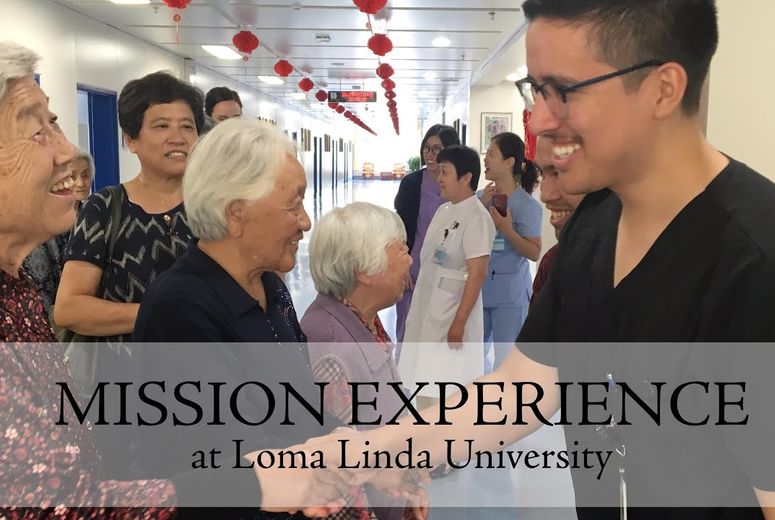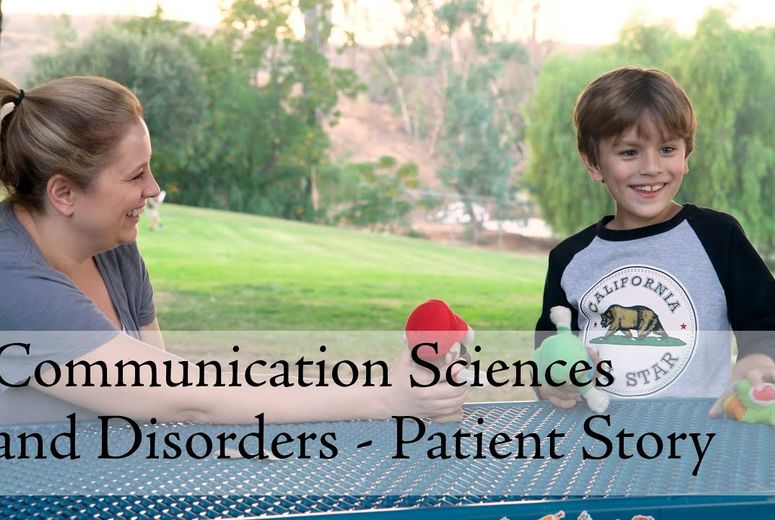
Welcome!
The three-year Transitional Masters program is designed for students who hold a bachelor’s degree from an accredited college or university in a field other than Speech-Language Pathology or communication disorders. The first year focuses on foundational coursework and is now available to be taken fully online (synchronously) or in person! The second and third years must be completed on campus. Graduates are eligible for the Preliminary Speech-Language Pathology Services credential (for California public schools), a Temporary License in Speech-Language Pathology (issued by the California Department of Consumer Affairs), and are prepared to begin Clinical Fellowship toward ASHA certification.
About Our Program
This full-time, cohort-based program spans eleven academic quarters over three years and begins each fall. After completing the first year of foundational coursework, students transition into on-campus graduate-level study paired with clinical practicum each quarter. Coursework is typically scheduled in the late afternoon, early evening, and one Friday morning per month to support a balanced learning experience. Clinical training intensifies over time, culminating in full-time public school and externship placements during the final year. Students may be placed out of state for these final assignments and should be prepared to accommodate travel. Graduate assistantships are available, and part-time work may be possible as long as it does not interfere with academic or clinical responsibilities.
Schedule a Consultation Request INFORMATION
Why Choose LLU's Transitional M.S. Program in Communication Sciences and Disorders?
-
Flexible First Year: Start your foundational coursework online (synchronously) or in person (the only year of the program offered in both formats).
-
Extensive Clinical Training: Build hands-on skills through ongoing practicum, externships, and full-time public school placements.
-
Credential-Ready: Graduate eligible for licensure and prepared to pursue national certification.
-
Faculty and Cohort Support: Learn in a close-knit cohort guided by experienced, dedicated faculty committed to your success and academic excellence.
Program Overview
Admissions Requirements and Application Process
Admissions Requirements
Bachelor’s degree from an accredited institution in a field other than speech-language pathology or communication disorders
Completion of at least one undergraduate course in biological sciences, physical sciences, statistics, and social/behavioral sciences before starting the second year
Minimum cumulative GPA of 3.0, with at least a 3.3 GPA in the last 96 quarter or 64 semester units
Personal statement (submitted online)
Three letters of recommendation, preferably academic
Official transcripts from all colleges and universities attended
Interview including writing sample and written communication assessment (by invitation)
GRE and Basic Skills exams (e.g., CBEST) are not required
Application Process
The application opens on October 1 and must be completed by March 1 for admission to the following fall quarter. The admissions committee reviews applications beginning in early March and sends interview invitations by late March. Interviews and written communication assessments are conducted in March, with admission decisions typically released 3 to 4 weeks later, usually in April.
Transcript Submission Address
Official transcripts must be sent directly to:
Loma Linda University
Admissions Processing
11139 Anderson Street
Loma Linda, CA 92350
Important Dates
October 1 — Application opens
March 1 — Application deadline (all materials must be submitted)
Early March — Admissions committee begins reviewing applications
Late March — Interview invitations sent
March — Interviews and written communication assessments conducted
April — Admission decisions released
14 days after acceptance — Deadline to submit $200 confirmation deposit
August — Registration instructions sent to accepted students
First week of September — Course registration opens
After Acceptance
Accepted students receive notification by mail and an email that includes a link to submit a $200 confirmation deposit online. This deposit must be paid within 14 days to secure enrollment. After acceptance, there is a 4 to 5 month waiting period before the program begins on the last Monday in September. In August, the Graduate Program Director contacts students with registration instructions. Course registration opens during the first week of September, and orientation is held on the first day of the program. Students are advised to reserve the entire month of September following the first year’s coursework for required pre-session events.
Program Resource Links
Certificate of Clearance
Graduate students are automatically enrolled in the California Credential Program (for work in the public schools). In order to do clinical work in the public schools, the Certificate of Clearance is needed. All new students must complete the Certificate of Clearance process prior to the beginning of fall quarter (typically the last week of September). To complete this process, go to: http://www.ctc.ca.gov/.
- Click on “Online Services for Educators.”
- On the Educator Page, click on “Submit Your Application for a New Type of Document – (Direct Web Application)”.
- Then click on “How to Submit Your Direct-Web Application”
- This will take you to detailed instructions regarding the Certificate of Clearance, completing the Live Scan and the online clearance process.
- It is not necessary to bring any form of verification that you have completed this process. The department Director of Clinical Education is able to verify your activity online.
Note: No student will be allowed to start clinic until the Certificate of Clearance has been awarded by CTC.
Background Check
As part of the registration process, the university requires all students to complete a current background check. You will receive notification directly from University Student Services. **Note: This is not the same as “Live Scan” or “Certificate of Clearance.”
Current TB Screening:
All students are required to have current TB screening. The Director of Clinical Education will provide you with instructions on how to get verification of your current TB screening to her. Note that if you are having your TB test done through LLU, you should get a copy of the paperwork/results before you leave the facility where you are tested. Student Health Services does not send us a copy.
Note: No student will be allowed to start clinic until an electronic copy of the TB screening is on record. Additionally, students will not be able to register for winter quarter until the department has record of their TB screening.
CPR Certification
All students in this department are required to have current health care provider Cardiopulmonary Resuscitation (CPR) certification (adult, child, infant). Certification through the American Heart Association is required in the department. This class may not be an online class. Classes are available on campus at Life Support Education, University Arts Bldg., 24887 Taylor St., Suite 102, or phone 909-558-4977, but you may take them from any American Heart Association.
Program Learning Outcomes & Student Achievement Data
Program Learning Outcomes (PLO's)
PLO 1: Articulate characteristics of typical human speech, language, hearing, communication, and swallowing processes, including their biological, neurological, acoustic, psychological, developmental, and linguistic and cultural bases.
PLO 2: Articulate characteristics of atypical human speech, language, hearing, communication, and swallowing, including etiological, biological, neurological, acoustic, psychological, developmental, and linguistic and cultural correlates.
PLO 3: Implement knowledge of basic clinical processes for the remediation of human speech, language, hearing, swallowing, and communication disorders and differences, considering caregivers, family, professional team members, and client/patient environment in remediation planning.
PLO 4: Incorporate cultural responsiveness to diversity (e.g., linguistic, neurological, economic, age, sexual, gender, ability, racial, professional) within academic and/or professional environments.
PLO 5: Use logical reasoning skills to evaluate, research and solve problems in CSD.
PLO 6: Incorporate basic components of professional ethics in academic scenarios regarding treating, counseling, advocating for, and documenting care for clients.
Student Achievement Data
On-time Program Completion Rates
| Period | # Completed with Expected Time Frame | # Completed Later than Expected Time Frame | # Students who did not Complete Program | % Completed within Expected Time Frame |
| 2025 | 32 | 0 | 1 | 97% |
| 2024 | 33 | 1 | 0 | 97% |
| 2023 | 33 | 1 | 0 | 97% |
Praxis Examination Pass Rates of Test-takers
| Reporting Period | # Taking the Exam | # Passed Exam | % Passed Exam Rate |
| 2025 | 17 | 15 | 88% |
| 2024 | 22 | 18 | 82% |
| 2023 | 25 | 24 | 96% |
Accreditation
The Transitional Master of Science (TMS) degree in speech-language pathology residential program at Loma Linda University is accredited by the Council on Academic Accreditation in Audiology and Speech-Language Pathology of the American Speech-Language-Hearing Association, 220 Research Boulevard, #310, Rockville, MD 20850, 800-498-2071 or 301-296-5700.



